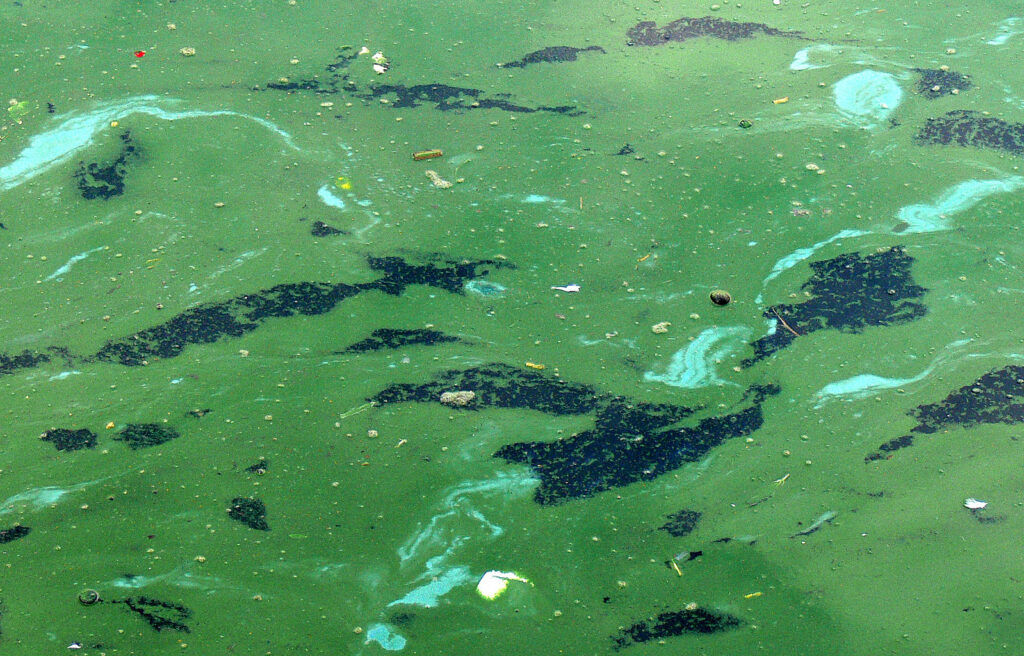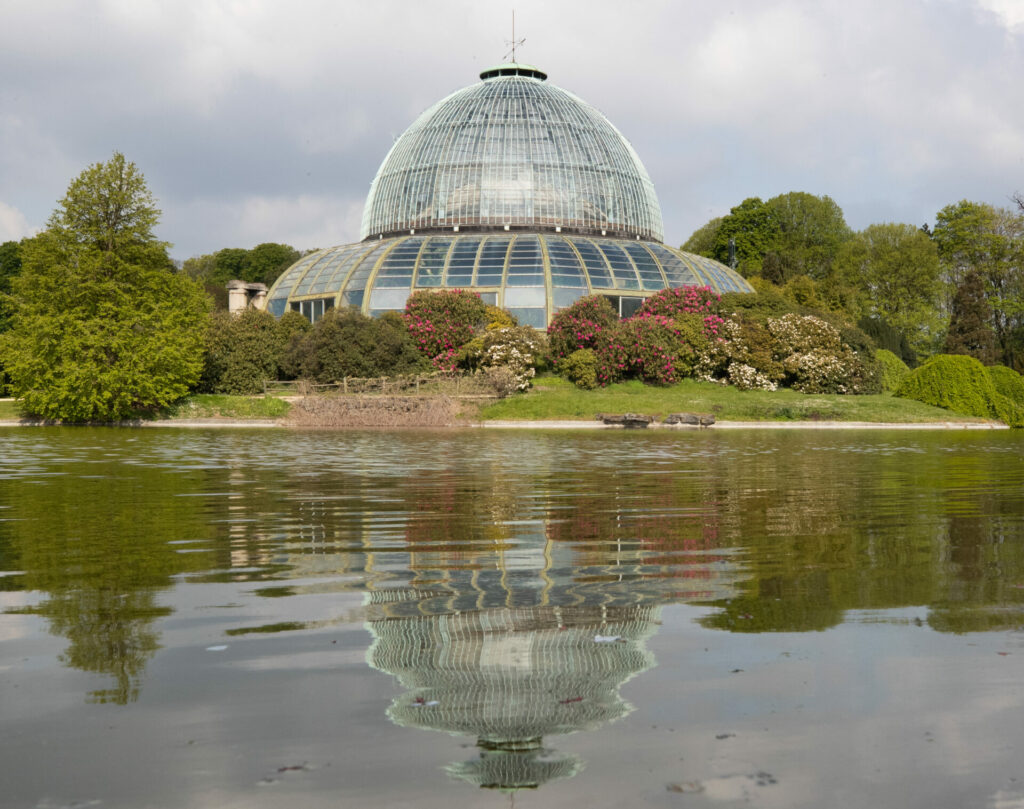The Port of Brussels is sending a warning to the residents of Brussels about the threat of toxic blue-green algae, also called cyanobacteria. The high temperatures we have seen over the last few days, with little rainfall, are perfect breeding conditions for the algae to grow in canals and ponds.
The general population is advised to avoid any areas where floating green or bluish algae can be seen. Water enthusiasts in particular, such as fishermen, sailors, rowers and swimmers, should avoid the water as longer exposure can lead to more extreme illness. Swimming in the canals is prohibited.
It is also strongly advised to not eat fish from the canal, as they may feed off of the algae. Do not allow your pets to bathe in the water or drink from affected areas.
How to spot the algae
According to Brussels Environment, cyanobacteria move with the water's current. When individual microorganisms occur in large numbers, they appear as a "bloom" or "water blossom." The blooms appear as a thin, foamy layer on the water's surface. Colour varieties can be green, blue-green, tan, red or white.

Blue algae, also called cyanobacteria, grow on a pond's surface. Credit: Wikimedia
Sometimes, the algae can take on a spherical or thread-like shape. When in doubt about the type of algae you have discovered, Brussels Environment encourages you to send photos to eau_water@environnement.brussels so that researchers can help you identify it.
What to do if you come in contact
Symptoms from ingestion of the algae include skin irritation, headache, nausea, diarrhoea, vomiting and even neurological disorders. For small pets, contact and ingestion of the algae can lead to death.
Related News
- Code red: Temperatures up to 40°C in Belgium today
- Senior citizens invited to federal museums to keep cool during heatwave
- Heatwave: Brussels residents rush to the coast to keep cool
Brussels Environment and the Port of Brussels urge those that come into contact with cyanobacteria to consult a doctor as soon as possible and take their pet to a veterinarian.

